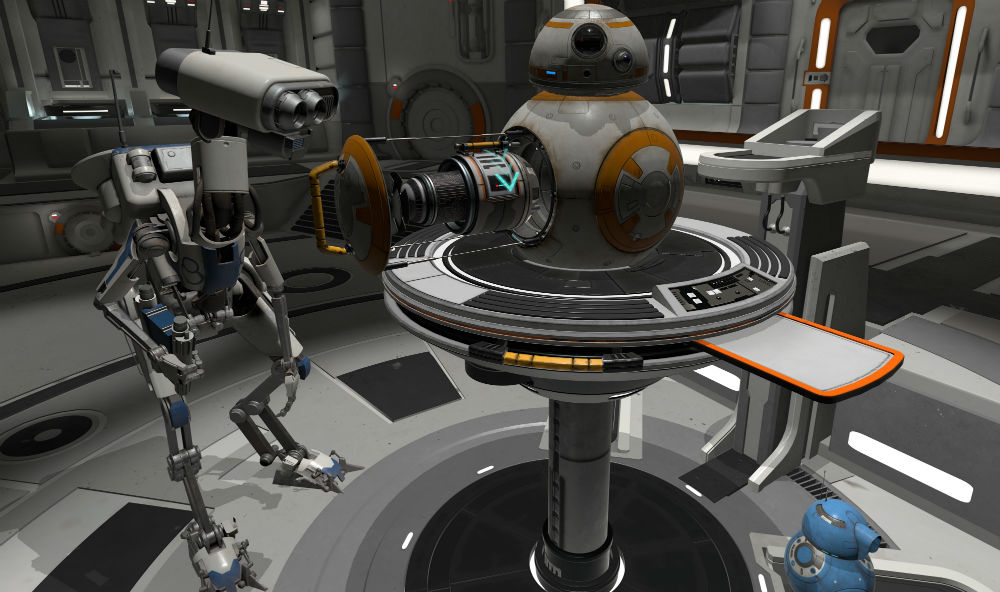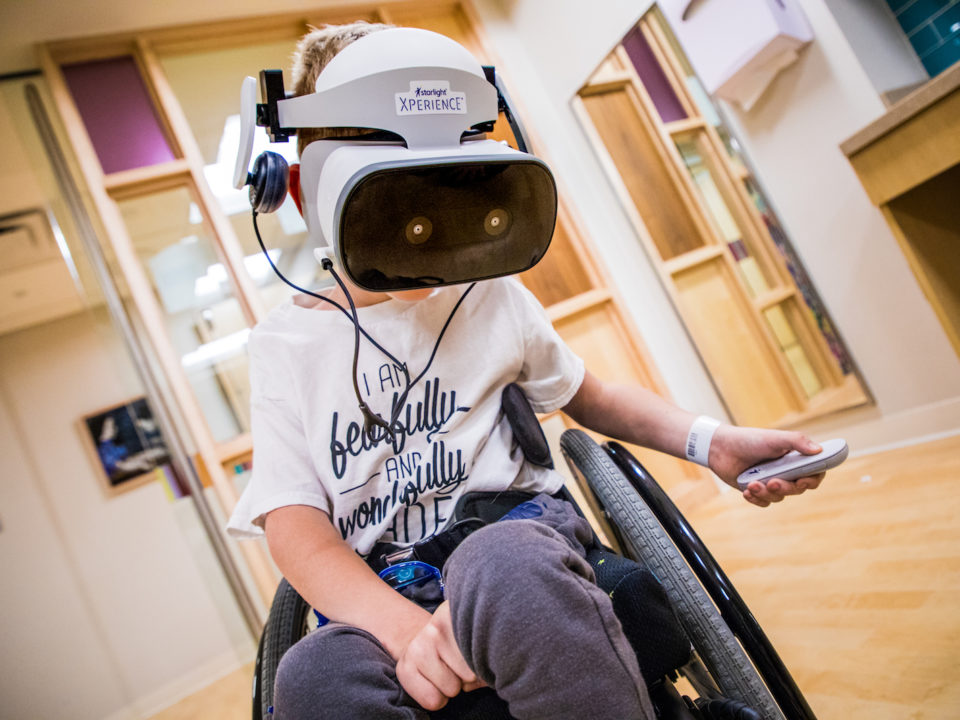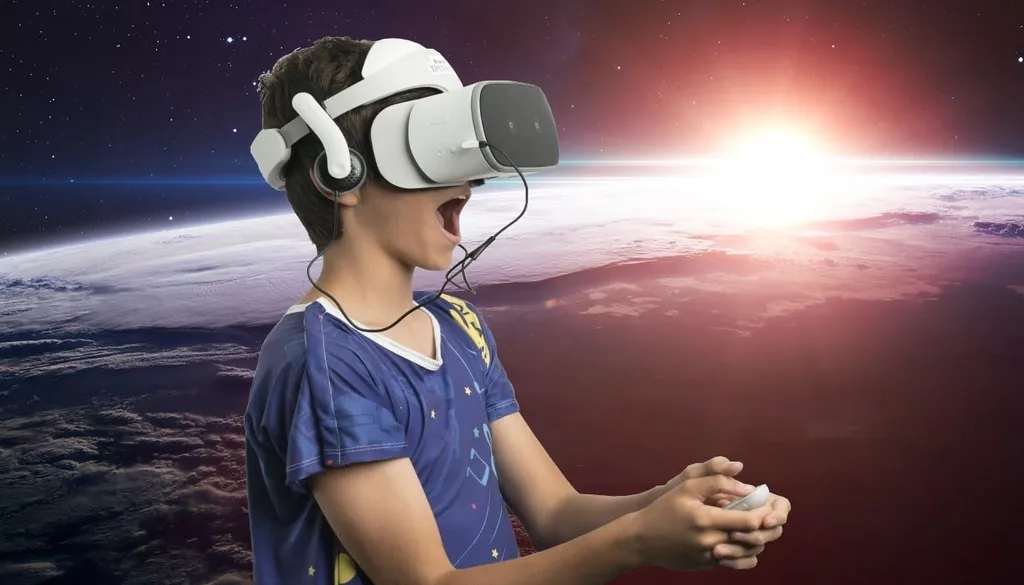Starlight is a well-known charity organization with the mission to create “moments of joy and comfort for hospitalized kids and their families” through a variety of initiatives. Initiatives include issuing gowns that let kids dress up as whatever they want to feel powerful, fun centers with things like video games, and Starlight Sites to transform hospitals into fun play zones. The most recent program, Starlight Xperience, is all about bringing the magic of virtual reality to the hospital.
In partnership with Google and Lenovo, Starlight delivers a Starlight Xperience kit to participating hospitals. The VR headset is a custom Lenovo Mirage Solo headset pre-loaded with over 20 VR experiences and customized for hospital use. The kit also includes headset-mounted headphones, charging cables, and a branded carrying case. Inside the headset the software has all been modified as well so instead of being in the Daydream UI you’re actually inside of a Starlight-branded portal with strict access to only the pre-approved age-appropriate content.
The Starlight Xperience
“Starlight is a 35-year old charity with a mission to make the hospital experience for seriously ill kids and family as positive, fun, and comfortable as possible,” said Chris Helfrich, CEO of Starlight in an interview with UploadVR. “We see children getting immersed in VR during painful medical procedures and the immersive distraction therapy lessens the need for heavy painkillers and anesthesia. VR can even take the place of pain killers in some cases.”
This isn’t the first time we’ve heard about this sort of usage for VR. I know some people personally that have worn VR headsets at the dentist to distract themselves and there are even documented cases of people using it during child birth. Not to mention use cases for VR to help combat racism, mental health treatment, physical therapy, treating a fear of flying, across the spectrum of health care, and even Oculus’ own “VR For Good” initiative.
Distraction therapy is a well-studied and well-documented form of therapy. The tricky thing is finding the right balance of stimuli. If something is purely passive, such as watching a video, it may not be enough. But if it’s too intensive and challenging, children give up or get frustrated, which exacerbates pain during a procedure.

The Magic of VR
“Our partners at Stanford developed very basic games that let administrators click a button to make it more challenging on the fly,” says Helfrich. “That lets them administer more of a cognitive load, forcing them to focus extra hard when the need is higher, so they’re fully distracted during the most painful points.”
“Whether they want to go snorkeling in the ocean or on a trip to the top of Mt. Everest, we accommodate as many interests as possible,” says Helfrich.
The types of experiences on offer vary as well, but they’ve partnered with Disney for some apps, such as the Droid Repair Bay, to deliver familiar characters in an interactive space.

“Just because you’re in the hospital doesn’t mean you shouldn’t be able to experience the wonder and magic of child life,” says Helfrich.
If you work for a hospital that’s interested in Starlight and the Starlight Xperience VR program, you can learn more at the official website and request your kit right here.
Let us know what you think of the program down in the comments below!






























